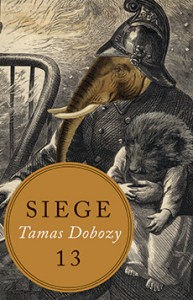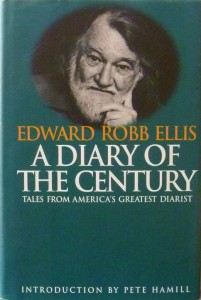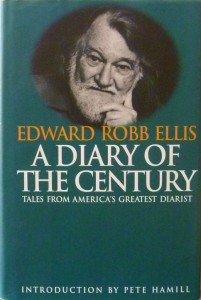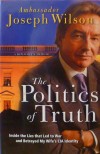Before you rush to answer “no” to the first question, consider that Amazon.com recently applied for a patent in this corner of the emerging digital marketplace. That development was covered by the publication Motherboard, in a piece headlined, “Used Ebooks, the Ridiculous Idea that Could Also Destroy the Publishing Industry,” and in a sign this may have the potential to catch the reading public’s eye, that story was quickly linked to by the Huffington Post Books section. There are many people in book publishing who believe that if a resale market for ebooks is established it will unavoidably engender a race to the bottom in ebook pricing, causing not just disruption but real damage in the entire book world, digital and print. And, yet, notwithstanding the impulse to make wry jokes about somehow shopworn ebooks with torn covers, or the resale condition of dog-eared ebooks, a company exists called ReDigi that is trying to create what it calls “the world’s first pre-owned digital marketplace.” They say they are working to enable readers of ebooks and consumers of digital music to resell books and music they choose to no longer own.
Today, Publishers Weekly, in one of the Executive Roundtable forums they hold every few months, provided their podium to John Ossenmacher, CEO of ReDigi. We were told early on by moderator Joe Wikert that several journalists were in the room, and that the day’s conversation would be on the record. I was glad about this since I’m a blogger and I report on these issues too. Thing is, I would hardly have been willing to consider it off the record had Ossenmacher insisted on that. Though he came equipped with a deck filled with many slides, his presentation quickly turned away from the screen at the front of the room toward the audience in front of him. The result was a spirited Q&A between Ossenmacher, a self-described “engineer who likes to get his hands dirty,” with a rather skeptical book business and media-centric audience.
Ossenmacher said they began engineering the software for their platform in 2008, and went live to users and consumers in October 2011. He added that shortly after that Capitol Records filed suit against ReDigi, on the assumption they were an illegal file-sharing site. Capitol claimed infringement of copyright on their intellectual property was being committed by ReDigi. The court didn’t see it that way, and Capitol’s plea for an injunction against ReDigi has so far been unavailing. Ostensibly because of the litigation history, Ossenmacher was guarded in his statements, though I thought he could have been more open in answering how many people they already have on the platform. Still, he was not so careful that I couldn’t follow what they’re trying to do. Among the intriguing things he said was that ReDigi is striving to lend some element of “physicality to a digital entity.” Counter-intuitive though this may seem, it is also an issue publishers are facing in a related context, where they’re challenged to create an analog to the experience of print book buyers, who meet an author and eagerly purchase an autographed and inscribed copy of a book.* He claimed that rather than enabling theft of IP, ReDigi within its domain monitors resellers’/relicensors’ accounts and requests that they delete an efile of a book that’s been sold on to a new user, thus he said, preventing multiple copies from being owned improperly. He added they will terminate the accounts of users who don’t comply. Ossenmacher claimed their business practice will actually serve to reduce piracy, not enable it. One neat piece of tech he mentioned is what he called “digital sonar,” which allows them potentially to locate and find a digital file that has somehow gone missing in the vast digital ecosystem–it emits a kind of “ping” that allows a stray file to be recovered and reassigned to whoever is its rightful owner.
Ossenmacher repeatedly asserted that “publishers are currently leaving digital dollars on the table,” by not accommodating readers and customers who enjoy the ebooks they buy, but then don’t want to retain them for perpetuity. He claimed that by design ReDigi is sharing revenue with publishers, who he added, can in turn, share that revenue with authors. I tweeted my concern though that many corporate and some indie publishers are still offering the frequently contested royalty of 25% of net for ebooks, half of what many authors and agents claim would be equitable. It must be pointed out that publishers and authors currently enjoy no monetary benefit from the market for used print books. Somewhat relatedly, with my publishing friend David Wilk, I am an advocate for what in the UK and Canada is called a “public lending right.” The term is a bit arcane, and it’s meaning isn’t obvious here in the U.S. In those countries, each time a book is checked out from a public library, the author receives a small royalty. You might see this as the first micro-payment. During the Q&A I asked if there might be something like a “digital lending right,” that could follow a book down the resale or re-licensing trail, benefiting creators beyond the first sale. Ossenmacher answered favorably, but of course he wouldn’t be the party directly funding that.
After the program ended, I went to the podium to thank the speaker, and found him in conversation with Bill Rosenblatt, of Giant Steps Media Technology Strategies. Rosenblatt was saying to Ossenmacher that as far as he could ascertain, ReDigi must be creating a copy of efiles they receive from resellers, which if so, would suggest one kind of legal status for them vis-a-vis the IP they’re handling. For his part, Ossenmacher insisted, “No, we’re not creating a copy.” Standing there, I pitched in an observation, that in ReDigi’s parlance, they’re “passing on a baton,” as in a relay race, not making a new baton. I wasn’t trying to carry water for ReDigi, but that was his point. Rosenblatt appeared unconvinced, though he declined to argue the point further. Ossenmacher thought the baton image aptly fits what they’re trying to do and I later tweeted about our 3-way exchange.
I’m intrigued at least that ReDigi, in trying to create a secondary market for ebooks and music, is sharing revenue with publishers and record labels. If that part of it works, it could become a good thing for creators and content companies. And yet, I worry about the far greater possibility that a market for re-licensed digital files will only degrade the value, and the price, of initial sales that publishers make. I wonder if ReDigi’s willingness to share revenue is in part conditioned by their certainty that publishers’ reluctance to do business with them would never be overcome without this provision. Color me skeptical about the whole idea.
In the picture at the right, Ossenmacher is standing in front of the slide that charts the money he believes publishers are leaving on the table by not pursuing a second-hand market for digital goods.
*Autography is one company working to create personalization in ebooks, with digital autographs, inscriptions, etc.
 I was glad to be consulted by reporter Ruby Cramer of BuzzFeed.com for a story about one of the activities Hillary Clinton is likely to undertake now that she’s left the State Dept. That is, a book she’s said she plans to write and publish. Here’s a link to the story, “Hillary Clinton’s Unwrittten Memoir the Talk of the Publishing World.”
I was glad to be consulted by reporter Ruby Cramer of BuzzFeed.com for a story about one of the activities Hillary Clinton is likely to undertake now that she’s left the State Dept. That is, a book she’s said she plans to write and publish. Here’s a link to the story, “Hillary Clinton’s Unwrittten Memoir the Talk of the Publishing World.”









